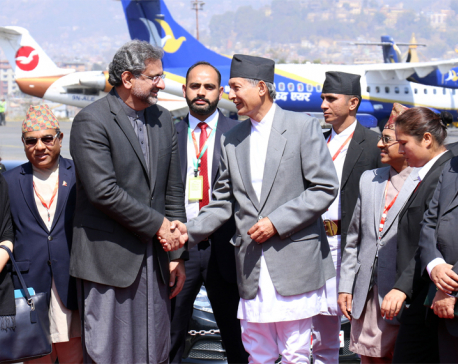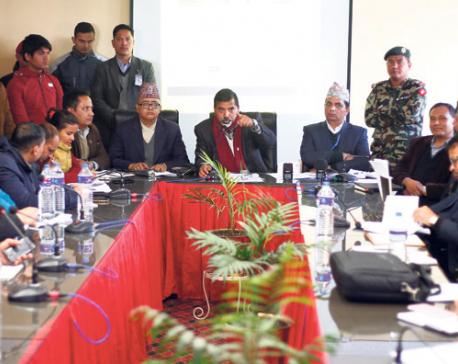
OR
Government trainings
There is little to show for the government expenditure of Rs 3.54 billion under ‘skill development and training’ last fiscal, as the country continues to be plagued by a severe crunch of skilled manpower. Even the government’s own planning agency, the National Planning Commission, concluded in a 2009 report that such expenditures were a ‘complete waste’. This was because in the name of imparting training most of the money was being used up by top government officials in their travels and in accommodations. In many cases, there were no actual trainings, even though top officials claimed expenses. Nonetheless, in this past fiscal, the Ministry of Finance alone spent Rs 636 million in such training and skill-development programs. Likewise, the Ministry of Women, Children and Social Welfare spent Rs 540 million. It is curious that these ministries have chosen to ignore NPC’s advice and continue to hold these meaningless trainings, at a big burden to the national treasury. Similar programs undertaken by our donors and I/NGOs have proved little better in delivery. There is as yet little evidence that donor spending shift from ‘hard’ infrastructure to ‘soft’ areas like human rights and governance has done any good.
With the promulgation of the new constitution and holding of all three sets of elections the country has finally emerged from the protracted political transition. Having passed this milestone, there is now a consensus that our collective focus must now shift to the country’s economic prosperity, and in ensuring that no Nepali is now deprived of essential healthcare, education and social security. Our donors and foreign friends can help by investing more in infrastructures like roads, electricity and clean water that will all help level the economic playing field. That has to be the government focus too. But for this the country needs many-many more skilled hands, which can only be had through more result-oriented training. For instance, the NPC had proposed that all existing trainings be stopped and replaced by a pilot project under which the youths could choose their own training. Such a system makes sense. If people can choose the training as per their unique needs, rather than get a general (and ultimately useless) training, they will be more motivated to get the right set of skills to make themselves more salable in today’s competitive marketplace.
Government ministers and senior bureaucrats turned down the NPC request because doing away with these trainings could deprive them of a handy tool to keep those in their patronage networks happy. The NGO industry supported these trainings and awareness campaigns so that they could justify their high funding. But with clear evidence at hand of their futility, surely, all this money can be better spent elsewhere. The best option, of course, is to match the trainings with the skill-sets that the country needs. Since the NPC has already done preliminary homework on this, there can be no justification for the new government to put off this vital reform any longer. It would also be one sure way of signaling its commitment to the economic prosperity it promised on the campaign trail.
You May Like This

Pakistani PM Abbasi returns after wrapping up two-day Nepal visit
KATHMANDU, March 6: Prime Minister of Pakistan Shahid Khaqan Abbasi has returned home this afternoon after wrapping up his two-day... Read More...

Govt promises 17 percent returns on equity investment
KATHMANDU, Jan 10: Investors of hydropower projects in Nepal can earn a maximum 17 percent return on equity investments. ... Read More...

Mario Goetze returns to Dortmund from Bayern
DORTMUND, July 21 : Borussia Dortmund is bringing back forward Mario Goetze from Bayern Munich. ... Read More...




Just In
- Health ministry to conduct ‘search and vaccinate’ campaign on May 13
- Indian customs releases trucks carrying Nepali tea, halted across Kakarbhitta
- Silent period for by-election to begin from midnight
- SC issues short-term interim order to govt and TU not to take immediate action against TU legal advisor Khanal
- National consultation workshop advocates to scale up nutrition smart community in Nepal
- Patan High Court issues short-term interim order to halt selection process of NTB’s CEO
- NEPSE inches up 0.15 points; daily turnover increases to Rs 2.53 billion
- Bagmati Govt mandates tri-lingual signboards in offices














Leave A Comment